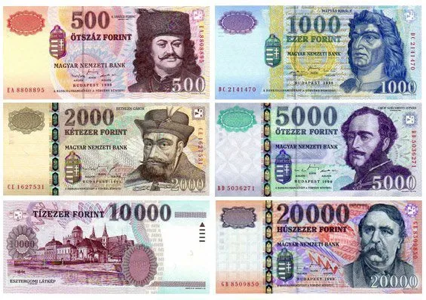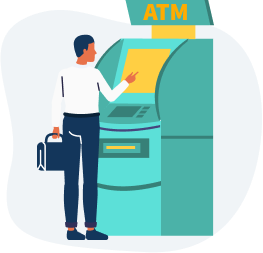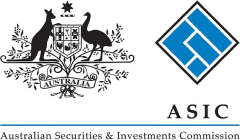Currency in Hungary
The Travel Money Guide to Hungary
There are so many things to do and see in Hungary like visiting the great hall market in Budapest, bathing in the hot mineral baths at Miskolc-tapolca or a taking a boat cruise down the Danube river. But it isn’t a budget destination and to get the most out of your trip, it’s a good idea to learn everything you can about the local currency and payment options before you go.
The currency used in Hungary
In Budapest and all across Hungary, the only currency used is the Hungarian Forint. If you are visiting from overseas, you won't be able to use US dollars or Euros to pay for things.
The official currency in Hungary is the Hungarian Forint, which has the international code HUF and the symbol Ft.
Hungarian forint banknotes have 6 denominations: Ft500, Ft1000, Ft2000, Ft5000, Ft10000 and Ft20000. The Hungarian Forint has 6 coin denominations: Ft5, Ft10, Ft20, Ft50, Ft100, and Ft200.
Interestingly Hungary is part of the Eurozone however it has not changed it currency to the Euro, similar to Denmark and Sweden, which have kept their existing currency.


Using Your Bank Card in Hungary
Most Hungarian businesses are well set up to receive card payments. Some of the best travel money cards include debit, credit and prepaid cards. But before you use your bank card willy-nilly, it’s worth reading up on the fees and charges you might incur.
Debit Cards
You’ll probably want a debit card if you plan to withdraw money from an ATM. While you may also be able to pay with a debit card in some businesses in the major destinations, you might discover some hefty fees on your account summary.
Depending on your bank, you could be hit with fees for foreign ATM withdrawals or currency conversions. But some banks are better than others; we recommend checking out Wise, ING and Revolut, all of which have travel-friendly debit cards that waive these charges.


Credit Cards
Credit cards can come with some enticing perks, including added security, loyalty programs, and even free travel insurance.
But are they worth it?
Major local businesses, including hotels, restaurants, airline offices, and department stores, accept credit cards. But you might have to pay a surcharge.
Mastercard and Visa are widely accepted. You may also be able to use your American Express card, though local ATMs won’t accept them.
Just be aware of additional charges you may incur for foreign transactions. These could include:
- International transaction fees
- High exchange rate margins
- ATM fees
- Potential ‘cash advance fees’ if you use an ATM
If you still prefer credit cards over any other payment, consider going with a company that offers cards that waive certain travel fees. Bankwest Platinum and 28 Degrees both have travel-friendly cards.
Prepaid Travel Cards
The biggest advantages of prepaid travel cards are that you can lock in a favourable exchange rate. You also get a handy back-up card.
Just remember that while they are convenient, you could end up paying a long list of hidden fees. Many travel cards still impose:
- Currency conversion fees
- Uncompetitive exchange rates
- International ATM withdrawal fees
- Initial load fees
- Reload fees
- Inactivity fees

How to Buy Forint Before You Go
There’s a certain reassurance that comes with stepping off the plane (or cruise ship) already cashed up with Forint.
Buying Forint before you leave Australian shores isn’t just convenient. It can also save you money. But it all depends on where you get your Forint in Australia. There are 3 main options:
- Buy HUF online and have it delivered or collect it in-store
- Swap Hungarian Forint for Australian dollars from a money changer
- Buy Hungarian currency at your home airport
Try S Money or a similar online currency exchange store to get rates that reflect the comparisons you see on XE or Google.
If you choose online delivery or in-store pickup, check the processing time. Some exchange companies with online options suggest you allow between two and five days to process currency.
Prefer in-store currency exchange? Head to the CBD of your nearest city for the most competitive exchange rates; suburban bureau de change outlets tend to have poorer rates and fees.
Currency exchange counters in Australia’s airports are infamous for their atrocious exchange rates. Avoid them if you can.
The Average Cost to Travel Around Hungary
To get the most out of your time in Hungary, you’ll want to create a budget and make sure your savings stretch as far as possible.
To give you an idea of a reasonable budget, we’ve listed the average prices of some common items and experiences you’ll have while in Hungary.
The average daily travel budget in Hungary is about $170. Some of the expenses you might be looking at include:

$120
A room in a guesthouse

$40
Two-course meal at a nice restaurant

$1
A local beer

$2
Public Transport One Way

$30
Entrance to a Bath
How to Exchange Currency in Hungary
Places like Budapest, and Szeged receive great numbers of tourists, so there are facilities to cater to money exchanges. Beyond these major destinations, it’s best to get cash before you venture into remote territory.

ATMs
We’re all used to getting our cash out at ATMs so it seems like the most convenient way to secure local cash abroad. Plus there are Budapest bank and CIB bank ATMs at the airport, making things extra easy.
Fortunately, in larger tourist destinations – including Budapest and Eger – ATMs are available at banks and some post offices.
Depending on your bank, you may have to pay for overseas ATM withdrawals and currency conversions. To reduce the amount you’ll pay in fees, try to withdraw just the right amount of money you’ll need for the duration of your trip.
Don’t forget: Let your bank know you’re travelling! If they detect a foreign transaction but aren’t aware you’re overseas, they could end up freezing your card.
Currency Exchange in Hungary
You won’t have any problem changing money in the major cities. There are plenty of bureaus de changes at the Budapest Ferenc Liszt International Airport and in busy tourist areas. Currency exchanges have many different names but the all tend to have “change” in their name and from the outside they look like a currency exchange shop in Australia.
A major bureau de change chain is Exclusive Change, which have 9 stores in Budapest. They normally have their name and a Western Union logo outside the shop attached to their logo.


Travellers Cheques
Not worth the bother! Travellers cheques are so outdated, very few banks even accept them any more.
They can’t be used as direct payment, so the only way to use them once you’re in the country is to swap them for currency at a bank or bureau de change office. Even then, very few banks will accept travellers cheques if you don’t have an account with them. And exchange services apply exorbitant fees and rates to them.


